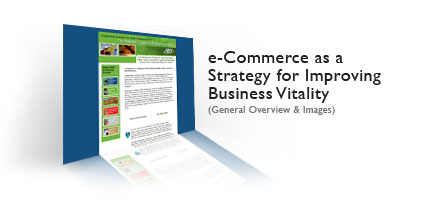Case Study For Business Biography
Case study: Partnering strategies in a bio tech. world: the case of Dairyland Seed Company
Author(s): Mark P. Leach, (Assistant Professor of Marketing, Department of Marketing, Loyola Marymount University, Los Angeles, California, USA), Luiz Mesquita, (Doctoral candidate, Department of Management, Purdue University, West Lafeyette, Indiana, USA), W. David Downey, (Professor and Director, Center for Agricultural Business, Purdue University, West Lafeyette, Indiana, USA)
Citation: Mark P. Leach, Luiz Mesquita, W. David Downey, (2001) "Case study: Partnering strategies in a bio tech. world: the case of Dairyland Seed Company", Journal of Business & Industrial Marketing, Vol. 16 Iss: 3, pp.219 - 238
Keywords: Agriculture, Channel relationships, Marketing strategy, Partnering, Vertical integration
Article type: Case study
DOI: 10.1108/08858620110389867 (Permanent URL)
Publisher: MCB UP Ltd
Abstract: Large agricultural producers often demand seed with high yielding genetics along with specialty traits specific to their particular needs. Dairyland Seed Company prides itself on its superior genetics and a research program that adds specialty traits while retaining the qualities of the original variety. Dairyland sources specialty trait technology from two competing suppliers – DuPont and Monsanto. Each of these suppliers is currently pursuing a strategy of forward integration through aggressive marketing programs and acquisitions. The implications for access to future technologies and long-term survival are profound, and leave Dairyland and other smaller seed companies with strategic decisions to make. This paper examines a channel of distribution for agricultural biotechnologies and the decisions faced by a small, reputable seed company when dealing with its large multinational biotechnology suppliers. Who should Dairyland be partnering with, and can Dairyland balance supplier dependency in an attempt to avoid being eliminated from the channel?
Case study: Partnering strategies in a bio tech. world: the case of Dairyland Seed Company
Author(s): Mark P. Leach, (Assistant Professor of Marketing, Department of Marketing, Loyola Marymount University, Los Angeles, California, USA), Luiz Mesquita, (Doctoral candidate, Department of Management, Purdue University, West Lafeyette, Indiana, USA), W. David Downey, (Professor and Director, Center for Agricultural Business, Purdue University, West Lafeyette, Indiana, USA)
Citation: Mark P. Leach, Luiz Mesquita, W. David Downey, (2001) "Case study: Partnering strategies in a bio tech. world: the case of Dairyland Seed Company", Journal of Business & Industrial Marketing, Vol. 16 Iss: 3, pp.219 - 238
Keywords: Agriculture, Channel relationships, Marketing strategy, Partnering, Vertical integration
Article type: Case study
DOI: 10.1108/08858620110389867 (Permanent URL)
Publisher: MCB UP Ltd
Abstract: Large agricultural producers often demand seed with high yielding genetics along with specialty traits specific to their particular needs. Dairyland Seed Company prides itself on its superior genetics and a research program that adds specialty traits while retaining the qualities of the original variety. Dairyland sources specialty trait technology from two competing suppliers – DuPont and Monsanto. Each of these suppliers is currently pursuing a strategy of forward integration through aggressive marketing programs and acquisitions. The implications for access to future technologies and long-term survival are profound, and leave Dairyland and other smaller seed companies with strategic decisions to make. This paper examines a channel of distribution for agricultural biotechnologies and the decisions faced by a small, reputable seed company when dealing with its large multinational biotechnology suppliers. Who should Dairyland be partnering with, and can Dairyland balance supplier dependency in an attempt to avoid being eliminated from the channel?
Case Study For Business
Case Study For Business
Case Study For Business
Case Study For Business
Case Study For Business
Case Study For Business
Case Study For Business
Case Study For Business
Case Study For Business
Case Study For Business
Case Study For Business
Case Study For Business












No comments:
Post a Comment